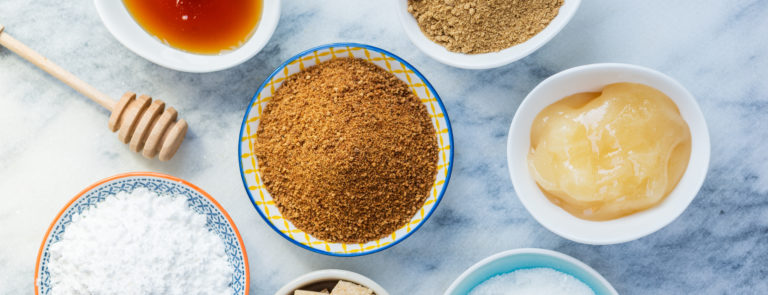10% off £35
8 benefits of sage tea

Heard about sage tea but you’re not sure what it is and what it’s good for?
Made from another plant member of the mint family, sage tea uses common sage leaves and hot water.
Rumour has it that sage tea also has a variety of benefits on our health… so if you’re interested, find out more in our below.
In this article, we’ll discuss
- What sage tea is good for
- If sage tea makes you sleepy
- How much sage tea you can drink
- The benefits of sage tea
- If sage tea is suitable for everyone
- Potential side effects of sage tea
- Homemade sage tea vs. shop bought
What is sage tea good for?
While we’re going to explore the benefits of sage tea later in the article, what are the sort of things it is said to be good for?
Generally speaking, sage is used to:
- Help with symptoms of the menopause
- Provide a source of antioxidants
- Reduce inflammation
- Support skin health
- Support oral health
- Help with brain function
- Improve blood sugar control
- Support heart health
But we’ll dive further into the detail of these benefits later in the article.
8 benefits of sage tea
Sage tea can be consumed for a variety of reasons, whether you’re looking for support for women’s health or your skin.
Discover all the different potential benefits of sage tea below.
-
Menopause support
For many years, sage has been used as a herbal remedy for symptoms of menopause.
In particular, sage has been used for treating hot flushes.
One study that was published in Advances In Therapy highlights how it is the first form of proof of the efficacy of sage in treating menopausal women who have hot flushes.
The trial which took place in Switzerland found that a daily tablet of fresh sage leaves reduced the severity and frequency of hot flushes.1
Another slightly older, smaller study conducted in Italy found that taking both sage and alfalfa leaves helped to completely eradicate hot flushes and night sweats in 20 women, largely improving these symptoms in 4 women and the remaining 6 experienced a reduction in these symptoms.2
These studies indicate that sage tea made with fresh sage leaves could have a similar effect if taken daily, but more research is needed on the efficacy of sage tea in particular.
What our expert nutritionist says
“Sage has mild phytoestrogenic properties, meaning it contains natural plant compounds that mimic the effect of the hormone oestrogen in the body.
As women’s oestrogen levels decline during the menopause, resulting in a range of unpleasant symptoms, the phytoestrogens found in sage help regulate hormone levels and reduce menopausal symptoms, including hot flushes and night sweats.”
-
Source of antioxidants
Another benefit of sage tea is that it has antioxidant potential.
This means that it could be effective at providing your body with molecules to fight free radicals – harmful compounds that can lead to ill health if you have too many of them.
A type of antioxidant that sage tea is high in is rosmarinic acid, which animal studies have shown to be beneficial for decreasing inflammation and blood sugar levels.3,4
Research from 2011 highlighted that sage tea was effective at improving antioxidant defenses in a double-blind trial on human volunteers.5
In addition to this, the same research highlighted that sage tea positively affect the antioxidant status of the liver when studying diabetic rats.
However it did also indicate that the antioxidative potential of sage tea can vary with every brand, so this is something to bear in mind when making your purchase.6
-
Anti-inflammatory properties
Similarly, sage is good for inflammation too.
Though inflammation is an important and natural bodily function, long-term inflammation can have a negative effect on your health and potentially increase your risk of getting ill.
The main component of sage that has strong anti-inflammatory properties is called ursolic acid.7
In a different study on mice, sage extract was found to significantly grow the levels of anti-inflammatory compounds in the blood as well as decrease the levels of inflammatory compounds.8
This evidence suggests that sage tea may also be beneficial for providing the body with anti-inflammatory compounds, as well as lowering the level of inflammatory compounds.
What our expert nutritionist says:
“Sage is rich in an antioxidant known as rosmarinic acid which has powerful anti-inflammatory effects in the body.
Research has shown that supplementation with herbs rich in rosmarinic acid, such as sage, can help to lower inflammatory markers in the body, which is particularly beneficial for inflammatory diseases such as rheumatoid arthritis and atopic dermatitis (eczema) (Luo et al., 2020).
Therefore, regular enjoyment of sage tea can help reduce inflammation in your body.”
-
Supports skin health
It doesn’t end there.
Sage tea may also be used for supporting your skin health – and has been used to treat skin diseases in traditional medicine throughout history.
When looking at the details though, it appears to be camphor that has beneficial on the skin, which is one of the main compounds found in sage.9
A study on mice from 2015 found camphor to be effective at promoting the growth of new, healthy skin cells.
But as well as this, it proved to be beneficial for slowing signs of aging and decreasing the formation of wrinkles.10
Another area of skin health that sage tea could help is skin healing.
In particular, animal studies have researched how sage is effective at healing wounds and cold sores.11,12
Equally, several different scientific researchers have highlighted through conducting test-tube studies that sage extract has the ability to kill some harmful fungi and bacteria that can damage your skin health.13,14,15
-
May promote oral health
Another reason why sage has been used as a herbal remedy is for the benefits it can have on your oral health.
Plaque build up can sometimes take place if there is an excess of certain bacteria.
And that’s where sage comes in.
The flavonoids and polyphenolic compounds found in sage have strong anti-bacterial properties, making it effective at combatting this build up.16
This has lead researchers to conclude that sage could be a useful remedy for treating diseases that affect the mouth and teeth.
In addition to this, sage tea itself has often been recommended for helping to heal mouth wounds and even soothing sore throats.
It is generally thought to help thanks to its antioxidant contents, specifically rosmarinic acid.17
Research from 2005 also shows that sage extract, and potentially sage tea, is some of the most toxic plant extracts to the damaging organisms that cause bad breath and harm to your oral health.18
-
Supports cognitive function
Sage tea may also be able to contribute towards cognitive function.
Specifically, sage is said to have beneficial effects on memory disorders, depression and a condition called cerebral ischemia – where blood flow to the brain is restricted.19
One review signifies how sage has been shown in trials to improve memory and cognition, alongside an elevated mood and increased alertness, calmness, and contentment (when dosage is increased).20
But when looking at how sage can impact conditions like Alzheimer’s, numerous studies found that it helped to prevent the formation of the amyloid plaques that form in the brain.21,22,23,24
The powerful impact of this herb is showcased in the study using 135 adults, where they discovered that even by just smelling sage can boost memory and mood, when they compared their results against a control group.25
So it could be possible that sage tea may have similar effects on memory and cognitive function.
What our expert nutritionist says
“Emerging research has shown the powerful effects of sage in supporting brain health.
Sage is rich in antioxidants known as polyphenols, with over 160 different polyphenols identified in sage extract.
These polyphenols have neuroprotective effects, helping to protect neurons from injury and reduce inflammation in the brain, which results in improvements in memory, concentration, and cognitive function.
Sage can also help support memory and cognitive function in older adults with cognitive decline, such as Alzheimer’s disease.
Sage is known to inhibit the breakdown of acetylcholine (a neurotransmitter) in the brain resulting in more effective connections between neurons.
This in turn results in increased memory, concentration and problem solving, particularly in individuals with Alzheimer’s disease who tend to have low acetylcholine levels (Lopresti et al., 2017).”
-
Improve blood sugar levels
Sage can often be found as an ingredient in alternative blood sugar medicine, as it may be able to improve blood sugar levels – and potentially treat or prevent type 2 diabetes.
These antidiabetic properties have been studied and found to be effective at improving lipid profile two weeks after treatment.26
In addition to this, it’s not just pure sage extract that has found to be beneficial, but sage tea too.
One study that tested on mice highlighted that fasting blood sugar levels were reduced when their drinking water was swapped with sage tea.27
This all suggests that sage tea may be beneficial for lowering blood sugar levels.
What our expert nutritionist says
“Sage has natural blood sugar lowering effects and is known to improve insulin sensitivity in individuals with diabetes or pre-diabetes.
A clinical trial found that individuals with type 2 diabetes who were given a daily sage supplement for 3 months showed a significant 32% reduction in blood sugar levels compared to placebo (Kianbakht & Dabaghian, 2013).”
-
Supports heart health
And finally, there is some scientific research that indicates that sage tea may help with cholesterol levels and therefore support heart health.
Sage extract has been found to improve the HDL/LDL ratio (or your ‘good’ to ‘bad’) cholesterol levels and lower triglycerides, insulin resistance and the size of fat tissue.28
Moreover, another small study that lasted four weeks showed that consuming 300ml of sage tea, twice a day, helped to lower the participant’s total cholesterol levels by 16%, LDL or ‘bad’ cholesterol by 20% and elevate HDL or ‘good’ cholesterol by 38%.29
But as this was a small study only using six women, more research is needed to clarify.
What our expert nutritionist says
“Sage can also help with the maintenance of healthy cholesterol levels, by lowering ‘bad’ cholesterol, LDL, and increasing ‘good’ cholesterol, HDL.
In a clinical trial, adults with hyperlipidaemia (high cholesterol levels) were given either sage extract or placebo daily for 2 months.
Results showed that those given sage had a significant reduction in LDL (bad cholesterol) and an increase in HDL (good cholesterol) compared to placebo (Kianbakht et al., 2011). Thus, sage tea can help support healthy cholesterol levels and keep your heart healthy!”
Homemade sage tea vs. shop bought sage tea bags
Would you prefer to make your own sage tea rather than buying shop bought sage tea bags?
Fortunately, you can do so and still reap the same benefits.
Here’s a simple homemade sage tea recipe for you to follow...
Ingredients
- A mug of boiling water
- 2 sprigs of fresh sage
- Sweetener or lemon (optional)
How to make homemade sage tea
1
Thoroughly wash the sage under running water and set aside.
2
Boil the kettle.
3
Add the washed sage to your mug, then pour the boiling water in.
4
Let the sage steep for 5 minutes, then remove.
5
Optional: stir in your sweetener and lemon and enjoy!
The final say
Feeling inspired to try some sage tea to experience the benefits for yourself?
Whether you’re trying homemade or premade tea bags, be sure to check with a medical professional in advance to make sure that it is suitable for you – especially if you have a pre-existing condition.
You also asked...
While sage tea doesn’t necessarily include any ingredients that could make you sleepy, it doesn’t contain any caffeine meaning it won’t disrupt your sleep on the whole.
Too much of any tea isn’t always a good idea, so to avoid any potential risks it’s best to stick to somewhere between one and six cups a day – depending on how strong you’ve made it.
Our expert nutritionist highlights who should avoiding taking sage tea:
“Although sage tea has a wide array of health benefits, unfortunately it is not suitable for everyone to take.
Sage tea is not recommended for individuals with epilepsy who take anticonvulsant medication, as it can impact the efficacy of anticonvulsant medication, resulting in increased risk of seizures.
Similarly, individuals who are on diabetes medication are advised not to take sage due to the impact of sage on diabetes medication and blood sugar levels.
Furthermore, sage is not recommended for those taking anti-hypertensive (blood pressure), anticholinergic or CNS depressant medication.
If you are currently on any medication please speak to your doctor before taking sage tea or sage supplements to ensure it is safe for you.
In addition, pregnant women are advised against drinking sage tea or taking sage supplements due to potential risks to the unborn foetus.
Similarly, we do not recommend sage tea for women who are breastfeeding as it can result in a reduction in breastmilk supply.
There is insufficient evidence to confirm that sage is safe for breastfeeding women, therefore it is advised not to drink sage tea during lactation.
If you have a family history of breast cancer or are currently on Hormone Replacement Therapy (HRT), a certain variety of sage, known as Spanish sage (Salvia lavandulaefolia) is not recommended due to its estrogenic effects.”
Sage tea is considered safe to drink, but it should not be taken at high doses or in excessive amounts per day.
This is because high doses of sage (or more than 3-7g of thujone per day) may lead to:
- Heart issues
- Seizures
- Vomiting
- Kidney damage
Here’s what our expert nutritionist also has to say on the side effects of sage tea:
“Like all herbal supplements, sage can result in side effects, particularly if taken in inappropriate doses.
Sage contains a naturally occurring neurotoxin known as thujone.
Although safe in small amounts, excessive intake of thujone can result in severe side effects such as vomiting, seizures, heart abnormalities and kidney damage.
Therefore, it is essential to be mindful of the quantity of sage tea and supplements you are consuming.
Although a standardised upper safe limit of thujone has not yet been established, the European Medicines Agency Committee on Herbal Medicinal Products Report (2011) recommends no more than 6g of thujone per day.
Therefore, based on clinical data, it is recommended to drink no more than 3 cups of sage tea daily (Walch et al. 2011).
When taken in appropriate doses, sage is generally very well tolerated and side effects are rare.
Moreover, high doses of sage essential oil can be toxic if taken orally. Therefore, it is best to stick to sage tea or sage supplements for safe oral use.”
Last updated: 25 October 2021
- https://link.springer.com/article/10.1007/s12325-011-0027-z
- https://www.ncbi.nlm.nih.gov/pubmed/9677811?dopt=Abstract
- https://www.ncbi.nlm.nih.gov/pubmed/21433280
- https://www.ncbi.nlm.nih.gov/pubmed/22194722
- https://www.frontiersin.org/articles/10.3389/fphar.2011.00079/full
- https://www.frontiersin.org/articles/10.3389/fphar.2011.00079/full
- https://www.ncbi.nlm.nih.gov/pmc/articles/PMC4003706/
- https://pubmed.ncbi.nlm.nih.gov/29333341/
- https://pubmed.ncbi.nlm.nih.gov/26458283/
- https://pubmed.ncbi.nlm.nih.gov/26458283/
- https://www.ncbi.nlm.nih.gov/pubmed/20707875
- https://www.ncbi.nlm.nih.gov/pubmed/30183236
- https://www.ncbi.nlm.nih.gov/pubmed/26668706
- https://www.ncbi.nlm.nih.gov/pubmed/29448760
- https://pubmed.ncbi.nlm.nih.gov/24224168/
- https://pubmed.ncbi.nlm.nih.gov/24224168/
- https://pubmed.ncbi.nlm.nih.gov/22194722/
- https://pubmed.ncbi.nlm.nih.gov/16022025/
- https://www.ncbi.nlm.nih.gov/pmc/articles/PMC4003706/
- https://www.ncbi.nlm.nih.gov/pmc/articles/PMC4003706/
- https://www.ncbi.nlm.nih.gov/pubmed/23303581
- https://www.ncbi.nlm.nih.gov/pubmed/23180621
- https://www.ncbi.nlm.nih.gov/pubmed/19154776
- https://www.ncbi.nlm.nih.gov/pubmed/21787715
- https://www.ncbi.nlm.nih.gov/pubmed/20589925
- https://pubmed.ncbi.nlm.nih.gov/19865527/
- https://pubmed.ncbi.nlm.nih.gov/16923227/
- https://www.ncbi.nlm.nih.gov/pmc/articles/PMC4003706/
- https://www.ncbi.nlm.nih.gov/pubmed/19865527














